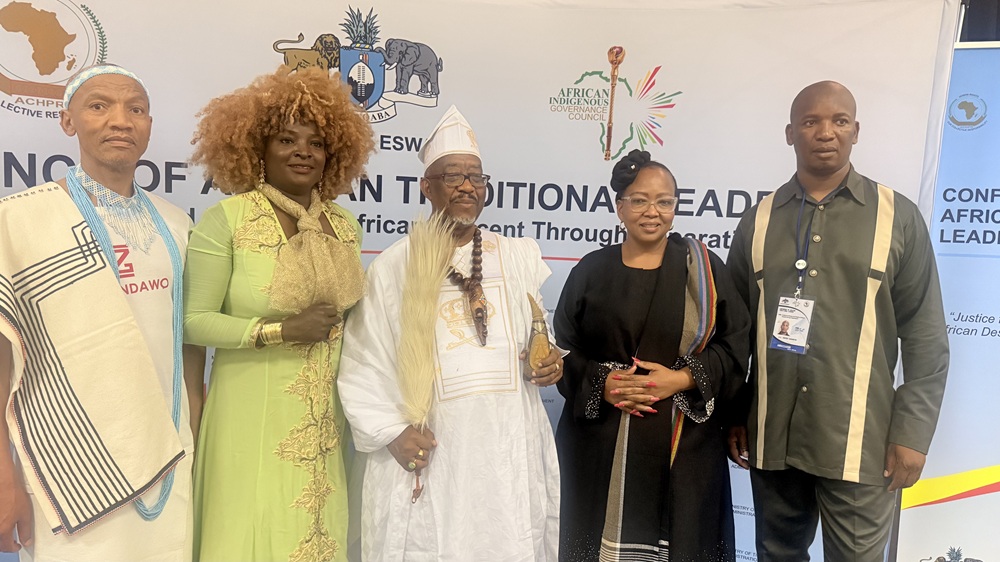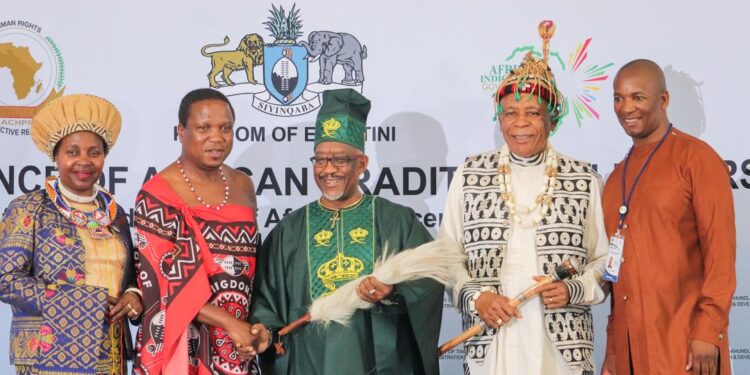By Ambassador Godfrey Madanhire
Esibayeni, Kingdom of Eswatini — In a venue adorned with tradition and filled with the voices of Africa’s ancestral custodians, a declaration was made that may well shape the course of the continent’s future. His Excellency Ambassador Brigadier General, Chief Dr Wallace W. Williams stood before an assembly of kings, queens as well as other traditional leaders and delivered a speech that did not merely challenge history, it summoned Africa to rewrite it.

He called for the ceremonial and symbolic burning of the Berlin Conference resolutions of 1884–1885, the very documents that once divided Africa into colonial fragments. It was not a gesture of protest, but a rite of restoration. “We must no longer live under the shadow of a map drawn in Europe,” he said. “A map that erased our royalty, our spirituality and our civilisation.”
The Berlin Conference, he reminded the gathering, was not a diplomatic achievement. It was a calculated act of dispossession. European powers, without African consultation or consent, carved up the continent to serve imperial ambition. Borders were drawn with no regard for kingdoms, cultures or sacred systems. The Ambassador’s call was clear: Africa must rise as a borderless civilisation, united by heritage, guided by royalty and anchored in its own voice.
His words did not stand alone. They were followed by a contingent of distinguished Africans residing in Switzerland, each adding their voice to the moment with clarity and conviction.
Ambassador Namboka Omosit Ireneo, a former career diplomat and retired United Nations Human Rights Adviser, spoke with measured force. He affirmed the call for unity and rejected the hypocrisy of external moral authority. “We cannot be lectured on human rights by those who authored some of history’s darkest chapters,” he said. His words carried the weight of institutional memory and lived experience.
Princess Kana of Burundi then stepped forward, her presence regal, her voice rich with emotion. She spoke of her royal lineage and of a journey to Salvador, Brazil, where she was embraced by locals who recognised her not as a visitor, but as kin. “They saw Africa in me,” she said. “They felt it in their bones. Our connection is not imagined, it is ancestral.” Her testimony was a reminder that Africa’s spirit lives far beyond its borders and that the diaspora is not distant, it is deeply rooted.
Yvonne Brändle-Amolo, originally from Kenya and now a member of parliament in Switzerland, closed the segment with a message of purpose and responsibility. “My role is not simply to represent,” she said. “It is to be a torchbearer, to open the door of opportunity for the entire village.” Her words were met with applause, not for their eloquence alone, but for their truth. She stood as proof that African leadership is not confined to geography. It is carried wherever the spirit of the continent resides.
Ambassador Williams had earlier invoked Africa’s heroic lineage with precision and reverence. He named Queen Nzinga, who outmanoeuvred Portuguese forces; the Ashanti, who resisted British expansion with discipline and courage; Emperor Menelik II, whose triumph at Adwa shattered colonial arrogance; Queen Nanny, who led Maroon resistance in Jamaica; and the Haitian Revolution, which declared Black sovereignty in the face of empire. These were not distant tales. They were foundations. “We do not rise from nothing,” he said. “We rise from legacy.”
From Eswatini, a new chapter begins. Not one of remembrance alone, but of restoration. Africa is not waiting. Africa is moving. And the fire that will burn Berlin’s legacy may yet light the way.
By Ambassador Godfrey Madanhire who is a delegate to the African Indigenous Governance Conference and a leading voice in continental advocacy, cultural diplomacy and institutional legacy. He serves as Diplomatic Envoy for the State of the African Diaspora and Chief Operations Officer of Radio54 African Panorama.




